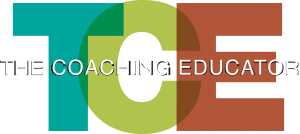By Paul Culp, MA (Oxon.), CFT, GCDF, CCSP
Zen master Alan Watts, in The Book on the Taboo Against Knowing Who You Are, reminisces about a university president who told him he was so busy he needed a helicopter to stay ahead.
“Well,” Watts replied, “you’ll be ahead as long as you’re the only president who has one.”
It never came to that, but the dilemma Watts posed is one that comes up with almost any technological advantage.
Here in early 2018, AI holds center stage as the advantage of the hour, with goodies like Alexa, Siri, Cortana, and Google Now fully integrated into the lives of untold millions of consumers. The potential impact of AI on the economy and the workplace is incalculable.
It would be a mistake to describe AI in the workplace as inevitable or not inevitable, in the most obvious sense of “AI” and “inevitable.” We’re past that point now. As the cutting-edge Chicago-based technology consultancy Solstice has noted, 70 percent of businesses plan to implement AI this year. Ignoring AI is not going to be an option for enterprises that want to match the competition in terms of providing optimal customer interaction, internal decision-making, and operational efficiency.
On the other hand, what is far from inevitable is whether businesses will grasp the relationship between the human and the digital, continuing to apply human intelligence to decisions about AI. According to Solstice, it’s useful to conceive of AI not as “artificial intelligence” but as “augmented intelligence,” a development that we can direct toward enhancing our own capabilities rather than merely automating our tasks. “Intelligence” remains the most critical element, and the blind treatment of artificial intelligence as a magic bullet or as an end in itself likely will be a trap for the unwary. As we shall see, an old-school type of education might prove useful for averting folly.
What’s inevitable is the continued growth and application of the technology. What’s far from inevitable is whether artificial intelligence really will serve the purpose of augmenting human intelligence. Artificial, we’ve got; augmented, we’ll see. We can’t augment what we don’t have, and the liberal arts could be crucial to having some good ol’ intelligence to begin with.
Artificial intelligence isn’t a magic bullet.
The future will belong to companies that neither fight the trend toward AI nor embrace all things digital in the belief that doing so will catapult them into the lead. Those that are too slow to embrace artificial intelligence will simply fall behind in an economy built on the constant acquisition and processing of more and better information. Those that overestimate what AI will do without careful and perhaps incremental implementation are likely to get tangled up in their own feet, creating new procedural headaches for themselves, paying for things they don’t need, and possibly making it more troublesome for customers to get what they want and be treated as they would prefer.
As Charlie Farmer of Solstice warns: “Those companies that think they are going to ‘implement AI today’ and wake up a fully transformed digital business tomorrow are kidding themselves. AI takes time to get right, and attacking it without organizational buy-in and not making your AI capabilities a natural extension of your realistic corporate goals can result in failure.”
As Farmer sees it, the key will be in remembering the mission, not in worshiping the technologies associated with it. Businesses will need to look carefully at what they intend to accomplish, and acquire or develop technologies with definite practical outcomes in mind, working backward from there, rather than forcing a technological template on themselves after falling in love with a theory. The latter approach to technology has already led to customer exasperation in many quarters as businesses automate in ways that make their procedures opaque and deny customers personalized service.
Artificial intelligence should create a pleasant experience.
For companies that truly augment their intelligence, the consumer’s interaction with the business will be made more efficient and fruitful, with more information reaching the consumer, faster and more easily, with tightly focused personal needs driving the exchange. Obvious examples of this principle in action are Amazon’s Alexa and provision of product suggestions on the basis of past customer behavior.
A word to the wise: Some companies may cross the line and become more personal than customers want them to be. Former New Republic editor Franklin Foer, in his recent book World Without Mind, recounts giving up his Kindle because he didn’t like Amazon tracking his underlinings and sharing them with other readers. He surely is not alone.
In some circumstances, artificial intelligence can look a lot like Big Brother. Knowing how far your customers really want you to go will be crucial. As Lao Tzu said, it is very important to know when to stop.
Companies that truly augment their intelligence will use enhanced information-gathering about their customers and their own personnel to make more informed decisions about all aspects of their operations and will be better able not only to see but to shape the future. They then will apply AI to final delivery of the goods or services to the customer and to the assessment of the customer’s experience, with an eye to further improvement. Theoretically, with artificial intelligence every function of a company can be made to deliver more strongly on the organization’s mission and ultimately on its public image.
Artificial intelligence requires the natural kind.
Businesses that resist AI will be blind and deaf in comparison with those that truly put it to work for keener self-understanding, stronger knowledge of the customer, and more efficient behavior at every level. On the other hand, businesses that treat AI as a panacea, as a push-button problem-solving kit, will be frustrated by the unintended consequences of things they didn’t try hard enough to understand.
Thus, paradoxically, the IT and AI revolutions could provide a boost to liberal arts education because of the type of mental discipline and breadth it provides. Roland Chin, professor of computer science and president of Hong Kong Baptist University, believes that “a liberal arts education sharpens our critical thinking and shapes fresh views and alternative perspectives essential to innovative thinking and to understanding what people really need…it prepares students for change, broadens their horizons, and enables them to face the unknown and the unforeseeable.”
The essential thing with the coming of AI is to remember the overarching purpose of enhancing outcomes for the human beings involved. Keeping our eyes on that prize will help us with our decisions about what to implement and why and how and with/for whom. As researchers at the University of Texas have pointed out in the Harvard Business Review, “Economic theory suggests that AI will substantially raise the value of human judgment. People who display good judgment will become more valuable, not less. ”
The human will and human wisdom (or lack thereof) will determine whether augmented intelligence or mere artificial intelligence occurs.
The latter, being here already and growing rapidly, is a certainty. The presence or absence of the former will determine who the winners and losers are.
Figuring out how to position yourself for the optimal education has become increasingly complex, but The Coaching Educator has been helping families with college admissions and financial aid for nearly a decade.
To learn more about our philosophy and capabilities, be sure to watch our free webinars, listen to our podcasts, sign up for our four-week College App Boot Camp, consider our Ultimate Programs and our special services for athletes and performing-arts students, and book a consultation to hear what we can do for you and how we do it. Keep reading this blog, and look for us on social media (see links below) as we keep our clients and admirers advised of new developments in our effort to help students get into and succeed at the right school.
Paul Culp is certified as a global career development facilitator and writes about college admissions, college costs, financial aid, and college life in general for The Coaching Educator team. A former journalist and corporate ghostwriter who now operates Shenandoah Proofreading, Editing & Composition Services (SPECS), he has also been a humanities teacher at all levels from university down to sixth grade. Paul has degrees from Oxford University, Jacksonville State University, and Samford University, and also is certified as a fitness trainer.
Recommended Reading About College Admissions
Culp, Paul. “Remedial Nation: The Ghastly State of College Preparedness,” The Coaching Educator, 19 January 2019, http://tce.local/2019/01/19/remedial-nation-the-ghastly-state-of-college-preparedness/

